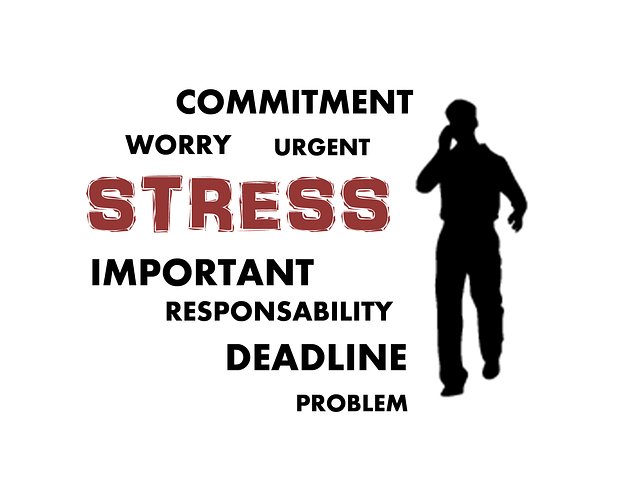I spent last weekend at my church’s annual Youth Retreat. In honor of that cherished and enviable leadership position, I wanted to re-post one of my favorite stories involving the unlikely match-up between an uptight executive (moi) and a gangly group of Junior High School kids.
Warning: This is not your typical blog post made up of scannable chunks and lists of information. It’s a real story, the kind you would find in an actual book or magazine (remember those?). So relax yourself, put up your feet, and take in some slow reading. Enjoy!
* * * * * *

Here’s a valuable tip for those of you thinking about volunteering with your church’s middle-school youth program: have very low expectations. Taking a few mental steps down the staircase of Acceptable Standards for Organizational Behavior proved to be very helpful for an executive manager such as myself in more effectively leading a gangly group of thirteen-year olds at my church.
I found out very early on that the weekly youth meetings of our Middle School “ministry” (please note that I use that term very loosely here) are nothing at all like the corporate management meetings that I am used to presiding over. When running a meeting at work, for instance, one can expect that those in attendance will listen to you. Also, you can be pretty sure that most of the time the group will show some measure of respect, decency, and collaboration. In the end you can hope for at least a small attempt at productivity, even in the most dysfunctional of teams. However, with middle school kids, you are pretty much outnumbered, ignored, and out of control ninety-nine percent of the time. Plus they can be really gross. Well, the boys, anyways.
As this topic of conversation comes up from time to time with friends and colleagues, many respond with a snort of laughter. That is then typically followed with a question that asks, in one form or another, “What on earth could have possibly possessed you to dedicate your precious time and astute executive mental acuity on — middle school kids?” Good question.
You may very well share the opinion of my enthusiastic friend from Starbucks, Reece, who upon hearing of my philanthropic endeavor with those surly church tweens said to me with a palpable disgust: “No one could ever pay me enough to work with middle school kids!” She put a defining emphasis on the words “ever,” “pay,” and “enough.” Sparks of spittle erupted from her mouth like fireworks as she spoke, especially on the word “pay.” She really meant it.
Then later that week, while enjoying the fellowship and sophisticated conversation of civil-minded adults at a church potluck function, I found myself cornered by the father of five boys. He had heard about my unfortunate falling-in with the middle school program.
“Well, now Brad,” he said with a serpent’s grin, in between bites of celery, “Aren’t you lucky, to get stuck leading the middle school program!”
This is a form of encouragement, right?
“My heart goes out to you,” he continued. “Boys at that age can be…”
He was searching for a word – one to replace the word that he intended to say, a word that I think he might have regretted using in mixed company, at a church function. Instead, he delivered the following statement to me:
“Eighth-grade boys are the lowest form of life on earth.”
Well. Thanks, for that. As a father of five of them, he ought to know better than anyone else, I guess.
That disappointing attitude happens to be the overriding sentiment of many of my professional colleagues, too. People are generally perplexed towards the circumstances surrounding my willing involvement in such a degrading form of charity. The answer is rather simple. I happened to have a middle-school age daughter who was active in our church’s youth program, and as such, at one point I was asked to “help out.”
You know very well how these things go. In the parallel universe of congregational volunteer life, this innocent-sounding invitation to “help out” is nothing more than a devious trap. On the surface the request appears so mild and harmless. Sure, I can help out! Why not? But eventually one thing leads to another, and before you know it, no one can remember who is responsible for next week’s lesson, and you did such a great job with the kids when you went on the retreat, and where did you come up with that great game that involved the toothpaste and raw eggs, etc. etc. Gradually, imperceptibly, you are sucked in further and further. Before I knew what had happened, I was the designated leader for our entire middle school fellowship of about forty kids.
I’ll admit I could have walked away from that unwelcome leadership post at any time. But there was a deeper motivation at work here: I felt sorry for them. There you have it. I sympathized with these kids for having to be that age. It’s not their fault! Someone has got to help see them through!
I know how bad it can be. Eighth grade was an especially traumatic year for me. Whenever I hear the kids complaining about school, or bullies, or some other puberty-related issue, I tell them stories of my own oppressive experiences when I was in eighth grade, in 1972. They soon begin to realize just how charmed their own lives are by comparison.
At that time, our nomadic family was going through a phase where we moved to a different state and school system for each year of my sixth, eighth and ninth grades. Eighth grade was definitely the worst of them all.
I was not the most athletic boy, so that immediately placed me firmly at the lowest ranking of the middle school echelon. Add to that my greasy hair, braces, and oversized, thick-lens eyeglasses, and you start to get a very sorry picture. To say that I was awkward-looking at thirteen years old is to be very generous. And here’s the saddest part: by the end of eighth grade, I had made only three friends: one was severely learning-disabled; one was a freak of nature; and the third was the most effeminate boy in the school. Honest. That was the best I could do.
“Tell us more!” The youth group kids say, hanging on every word. They eat it up, imagining me as the dork that they could have pounded on today in the hallways of their school. “What was wrong with the freak? Did you get beat up? Did you ever find out what happened to them?”
Entering the eighth grade homeroom class for the first time as the new kid from out of town, I was introduced to Mr. Hanson, the math teacher. Mr. Hanson was a short, slight man with a head like a bird. He took one look at me and did some quick calculations in his head:
Braces + thick glasses – direct eye contact ¸ no self-confidence = Loser.
Once the situation was summed up firmly in his mind, he knew immediately what to do. Mr. Hanson called over the Freak of Nature and asked him to shepherd me through my first few days of school. This boy, if I can even call him that, was about seven feet tall and was already developed, like a full-grown man. However, his face was covered with a severe case of acne, which reminded you of his unfortunate state of puberty. He was like a thirteen-year old boy crammed into a thirty-five-year old man’s body. This meant, of course, that no other normal thirteen-year old in their right mind would want to be caught dead with him.
Freak of Nature promptly escorted me over to his table, where he kindly offered me the seat next to him (I attended a very progressive school where the students sat at large tables in groups rather than at individual desks). I couldn’t help but notice that, while all the other tables in the classroom seated six or seven pupils, this table of eight had only two other students stationed there: a boy with an obviously severe learning disability; and an effeminate young man, who was, dare I say, flaming.
Without a moment’s hesitation from Mr. Hanson, I had been taken directly to the Table of Outcasts. That pretty much set the tone for how the rest of the year was going to be.
Once I was seated, The Flaming One immediately launched into an animated tale of his weekend festivities, which was dominated by the intricate re-telling of a musical theatre performance that he had attended, a show that I had never heard of before, called “Jesus Christ Superstar.” I pretended to organize my notebook and pencils as he described in vivid detail, using a variety of flowing hand movements, the highlights of this fabulous theatrical production. It was the dream of his life come true, he gushed.
By the time he sashayed through Act 3, a cold, harsh realization set in regarding the fate of the eighth grade year before me: once I had taken that fourth seat at the Table of Outcasts, there was no turning back.
If Jesus ever showed up at our school, he would have definitely made a bee line over to our table first. He would have brushed hastily past the other tables filled with good-looking, socially-confident and well-adjusted young teens, and rushed to our aid, filled with compassion.
Throughout that year, I endured my fair share of eighth-grade cruelty, but survived well enough with my little band of misfits. The Flaming One proved to be a very entertaining table-mate. He was good-natured, full of dramatic tales, and, against all odds, had a much higher self-esteem than I could ever seem to muster. The Freak of Nature was extremely kind to me, the entire year. And the boy with the learning disability showed a great sense of humor. We stuck together, and stuck it out.
Thank God we moved again, and in ninth grade I totally reinvented myself. I filled out, I started washing my hair, got more stylish glasses, and embarked on the one sport that I was really good at – the swim team. That was the year I learned about resilience.
In spite of all the chaos associated with leading the middle school youth group, I have grown to love these kids. After feeling initially terrified about how to interact with them (am I cool enough? Will they think I’m a geek? Will I be too strict?), I soon loosened up and actually got to know them. Much to my surprise, I discovered that they each have distinct personalities and interesting ways of viewing the world. When you get past all the farting and punching and spitting and throwing things and celebrity gossip, you find that they actually have opinions! I told Reece, “You know, you’d be surprised that there are actual human beings under there, if you look close enough.” And that, my friends, was my startling discovery about working with young teenagers. They are really just younger versions of adults. Or maybe we are older versions of thirteen-year-olds.
At the end of each meeting, before everyone goes home, we circle up in small groups for a brief time of discussion and prayer. This is the part where, in theory, you can break through all the fun and games and delve in to some serious theological conversations.
Right.
The other night it went like this:
Me: “Ok kids, time to pray. Does anyone have any prayer requests?”
Kaitlynn: “My friend’s gramma is dying”
Me: “OK. We’ll pray for her.”
Jenna: “One of our teachers commit suicide last week”
Me: Yikes! (Calmly, like I knew all about it) “OK, yeah, I heard about that. That’s real sad”
Kylie: “Yeah, she was like involved in drugs and she was like really depressed because her husband left her”
All: (Excited chatter and sharing of bits of gossip. Madison knew WAY too much.)
Me: “Ok, Ok kids let’s focus.” (This phrase occurs quite a lot with me and middle school kids) “Alright, we’ll pray for the teacher and the family.
Anyone else? For prayer?”
Louis: “We should pray that the cops catch the killer of the lady who was cut up into pieces and put into different garbage bags and thrown out of the car window onto the highway.”
Me: (Thinking) OMG! I just heard about this on the news during dinner. Apparently, so did Louis. Why do these kids have to be exposed to so much horrible violence? Deep sigh. “Yes, we’ll pray for the killer to be found”
I paused for moment as the kids who hadn’t yet heard about this brutal crime got all worked up, trying to find out more details from Louis. “You know, guys,” I interrupted, “I wish you didn’t have to even hear about things like that. It must make you feel scared sometimes.” They seemed unfazed.
We huddled up real close, and prayed for the gramma, and the teacher’s family, and, yes, for God to help the cops find the killer. Then I asked God to show these kids how much He loves them. I don’t know how or where or when, but please let these kids know God’s love. Everyone is quiet for a moment as I finish the prayer. I sense the peace of Christ piercing their hearts.
“Amen!” we all say, holding our hands tightly together. Then one of the boys farts and the kids break up into fits of laughter and disgust.
Photographs by nAncY, used with permission.











